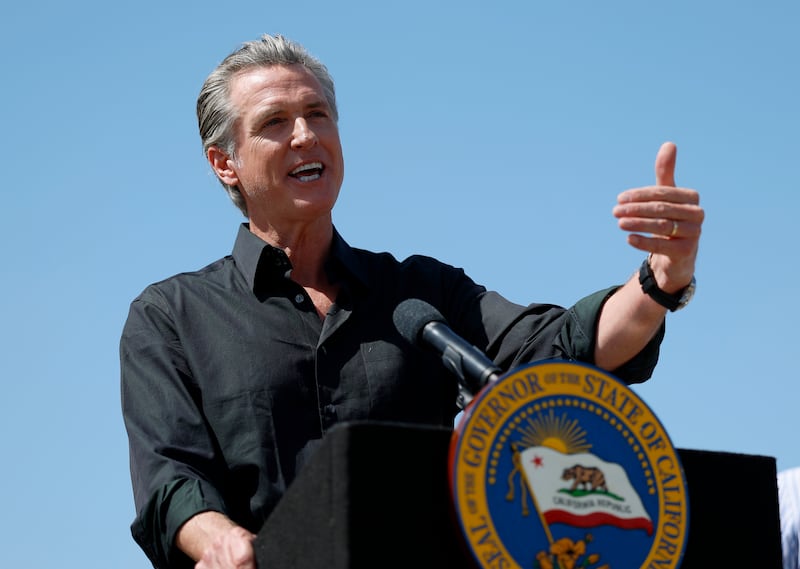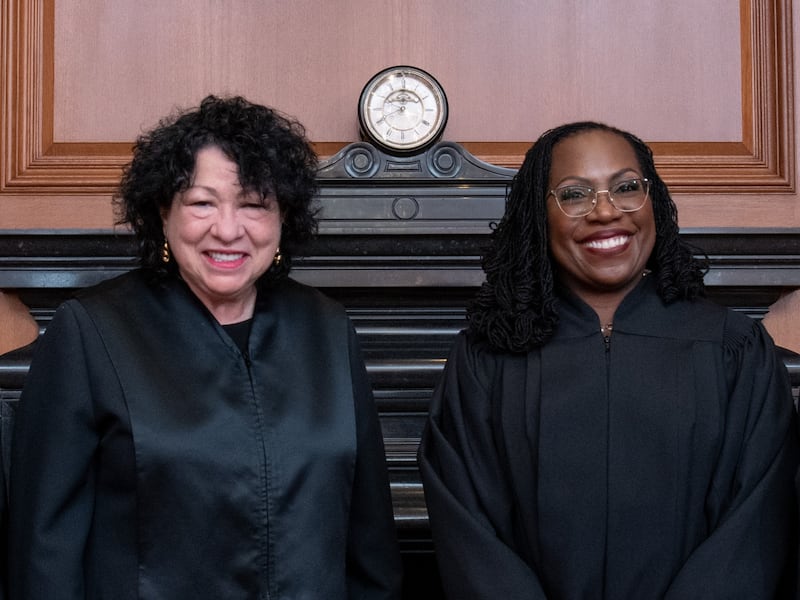Supreme Court Justice Ketanji Brown Jackson had scathing words for seven of her colleagues on Friday.
After the Supreme Court ruled 7-2 in favor of allowing fuel producers to challenge California’s heightened emissions limits, Jackson issued a biting dissent in which she argued her colleagues are creating a public impression that the court favors “moneyed interests.”
“This case gives fodder to the unfortunate perception that moneyed interests enjoy an easier road to relief in this Court than ordinary citizens,” wrote Jackson on Friday. She added, “I worry that the fuel industry’s gain comes at a reputational cost for this Court, which is already viewed by many as being overly sympathetic to corporate interests.”

Though the federal government’s Clean Air Act sets a nationwide emissions standard for the amount of pollution allowed from cars, California has relied on a 1967 waiver from the federal government allowing it to set its own, much stricter standards in an effort to curb emissions.
As Jackson pointed out in her dissent, the waiver was approved because California was the only state in the country to have taken active steps to set emissions standards before the federal government.
The EPA stood behind this exemption policy in 2022, when it reinstated the 1967 waiver, allowing California to continue setting its own emissions standards.
In 2020, California Gov. Gavin Newsom also unveiled a plan to phase out the sale of gas-powered cars in favor of zero-emission vehicles statewide by 2035. President Donald Trump, who is locked in multiple legal battles with Newsom, called the law a “disaster for this country.”

Since Newsom’s announcement, California has faced pushback from fossil fuel companies and the Trump administration alike. On June 12, Trump signed into law a congressional resolution blocking California’s zero-emissions vehicle policy, telling reporters he had “rescued to U.S. auto industry from destruction” by doing so.
Meanwhile, Diamond Alternative Energy, a subsidiary of Valero, has been locked in a legal battle with the state over its heightened emissions standards for the last three years.
Fuel producers faced a major win with the Supreme Court’s Friday ruling, however, which determined Diamond Alternative Energy has the legal standing to challenge the EPA’s approval of California’s heightened standards.

As one of only two dissenting justices alongside Sonia Sotomayor, Jackson wrote that her issue wasn’t just with the result of the decision, but with the fact that the suit, which she argued “will soon be moot (and is largely moot already),” was selected to appear before the court in the first place.
Indeed, because the Trump administration has already taken broad steps in reducing California’s power to set its own emissions standards, federal policy could eradicate Diamond Alternative Energy’s need to sue long before its suit is actually heard.
However, Jackson wrote that she still fears the ruling, while eventually moot, has set a precedent that will “no doubt aid future attempts by the fuel industry to attack the Clean Air Act.”
This case marks the latest of several to garner accusations that the conservative-majority court favors corporate interests. In 2024, the court overturned a 1984 decision known as the Chevron Defense, which also concerned the Clean Air Act. The court’s new ruling undid a policy that gave federal agencies precedence over courts in regulating their respective industries, earning praise from conservatives and condemnation from environmental activists.
In her dissenting opinion on Friday, Jackson explained that the court’s favor toward hearing cases brought by corporate entities over those from “less powerful plaintiffs” was setting in motion a dangerous pattern for a court already plagued by accusations of favoring the rich.
“Over time, such selectivity begets judicial overreach and erodes public trust in the impartiality of judicial decision making,” Jackson wrote. “Today’s ruling runs the risk of setting us down that path.”
The post SCOTUS Justice Says Court Favors ‘Moneyed Interests’ in Blistering Dissent appeared first on The Daily Beast.




